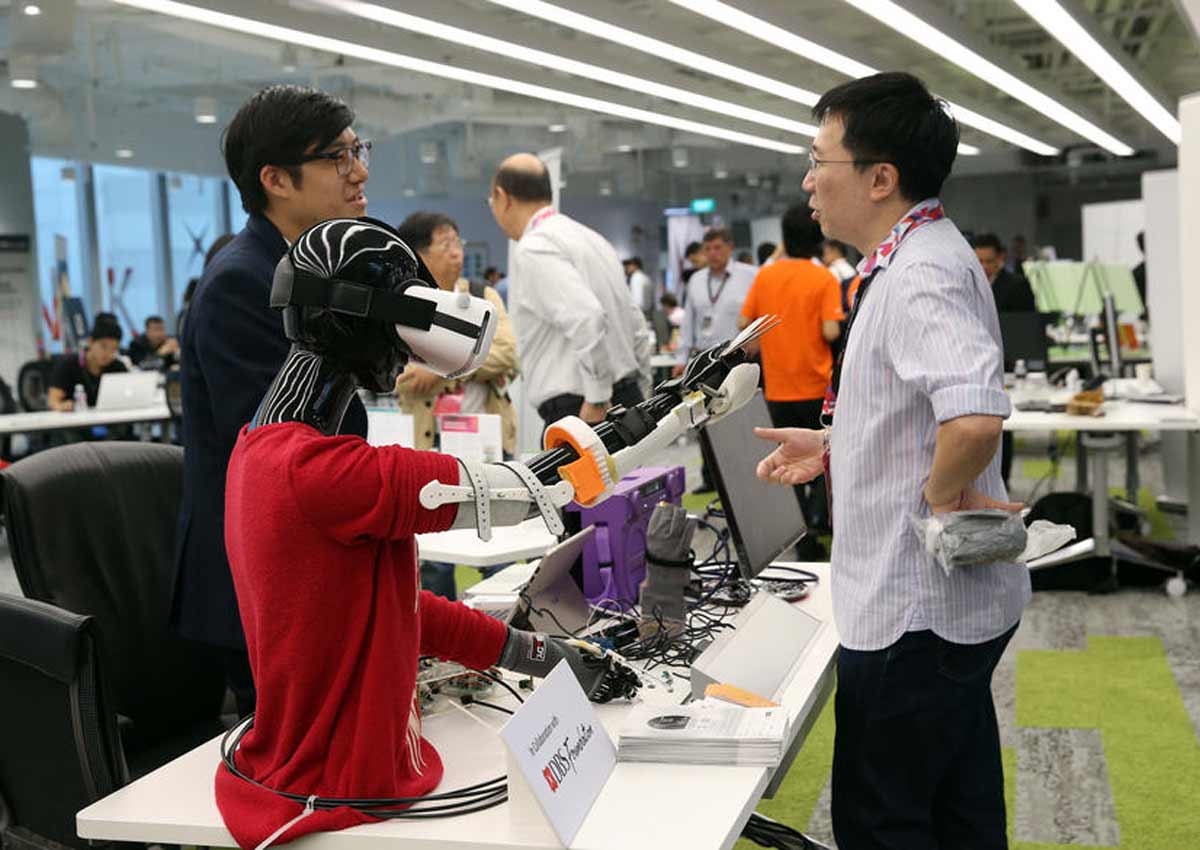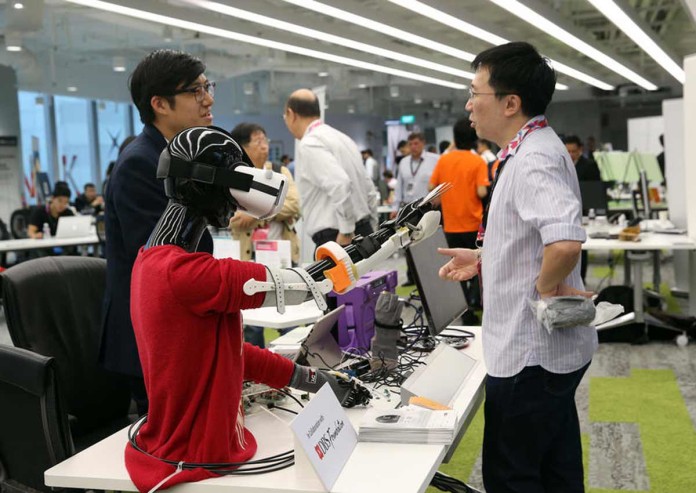TECHNOLOGY is rewiring the financial industry and increasingly altering the way that we transact in our daily lives. From paying for a Grab ride with GrabPay to using Apple Pay to purchase items with the tap of a thumb, cashless has become the currency of progress.
But Singapore’s rise to become a global fintech hub is not just a byproduct of the island’s well-established financial services sector. This progress has been propelled by government efforts to create an environment in which financial technology (fintech) startups can flourish – be that the recently published Payments Roadmap, the regulatory sandbox to support fledgling fintech ventures, or the Looking Glass @ MAS – an innovation lab designed to foster collaboration between fintech startups and the institutions that have historically defined the financial industry.
However, fostering a supportive regulatory environment is only part of the picture. By working with fintech startups around the world – from Monzo to Xero – we have identified a number of tried and tested principles that Singaporean startups can follow to scale faster:
Change is constant – partner up to keep up
Historically, the world of financial services was run by large banks that owned the vast majority of products available to consumers. Any investment was focused on making things more profitable rather than improving customer experience or innovating. This meant that things such as payments, current accounts and online banking got left behind.
Today, however, the dizzying rate of change is clearly evident across mobile payments, near-field communication (NFC), challenger banks, robo-advisers and more. Spoiled for choice, our expectations are constantly being raised by new challengers in the space who focus on a single product and deliver on it.
Working with partners who will help startups execute rapid responses to new industry developments, such as Apple Pay and the latest in machine-learning technology, will be fundamental to getting ahead.
Minimise friction for your customers
Fintech startups risk leaving revenue on the table if they do not make it as easy and quick as possible for their customers to pay, especially on mobile. Today, asking customers to log into their current accounts and do a bank transfer with a reference code is almost akin to asking them to send a physical cheque.
Startups need to ensure that the way that they take money from their customers is compatible with how their product is being used. Providing a simple mobile checkout flow is fundamental to this. In many cases, taking a seamless, tech-forward approach has enabled fintech startups to reduce customers’ pain points more effectively (and swiftly) than the banks. The products and solutions that they offer are personalised to the point that it meets the needs of customers – nipping their challenges and issues right in the bud.
Tap the growth potential of recurring payments
Fintech entrepreneurs are building products that collect loan repayments or regular top-ups from investors. To optimise this process, it is important to securely store customer payment details and choose to bill cards at specific frequencies.
UK-based fintech startup iwoca is a good example of a business that does this well. Being able to collect loan repayments more efficiently provides the company with a strong driver of sustained growth by lending out more money faster. Recurring payments are an amazing (and under-utilised) growth compounder for fintech startups.
Don’t be a jack of all trades – focus on your core
When entrepreneurs start their own fintech business, there is a fair chance that they did so with a singular purpose in mind, such as lowering the cost of international money transfers or allowing friends to split a restaurant bill. As a startup, it is crucial to focus on the product and not peripheral tasks.
Startups can do this by using ready-made tools, which means that they will not need to become a master at PCI (Payment Card Industry) compliance, or design their very own machine-learning system to prevent fraud.
Kickstarter is a good role model. Since its inception, over 100,000 projects have been successfully funded around the world. It was recently launched in Singapore, where individuals have spent nearly S$41 million backing Kickstarter projects – about 16 per cent of the pie worldwide.
There are huge demands on the Kickstarter platform, such as KYC (Know Your Customer) and AML (Anti-Money Laundering) checks on the projects, receiving funds from project backers, and then transferring the funds to accounts based all over the world. Kickstarter managed to expand so quickly internationally by working with the right partners to complete KYC/AML checks for them, and automate their entire international flow of funds.
Simplicity is best
Twenty-first century finance has simplicity at its core. Just as Apple did with the iPhone a decade ago, it is not about removing features but about increasing the usability of those features through an intuitive user experience. Design the product with the customers’ intentions and desired outcome in mind, rather than just to perform a utility function.
The evolution of money remittance is an excellent case study of the role that technology is playing to simplify cumbersome transactions. Toast, the peer-to-peer money transfer app, has placed convenience, speed and ease at the heart of its user experience. With just a few clicks, migrant workers in Hong Kong can remit money home from their smartphones without expensive transfer fees, frustrating delays or the inconvenience of queueing at a money transfer shop.
Singapore is on the cusp of a fintech revolution. The confluence of shifting market conditions, a progressive policy environment and vibrant startup scene has created a perfect storm, placing Singapore in pole position to become the fintech capital of the world.
The writer is head of South-east Asia and Hong Kong at Stripe, an American technology company that deals in online payments.

This article was first published on November 17, 2016.
Get The Business Times for more stories.







